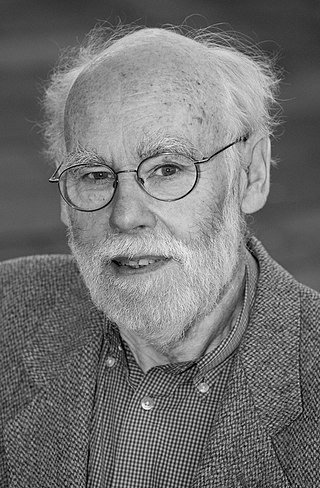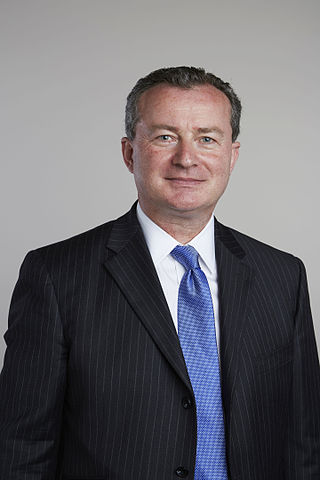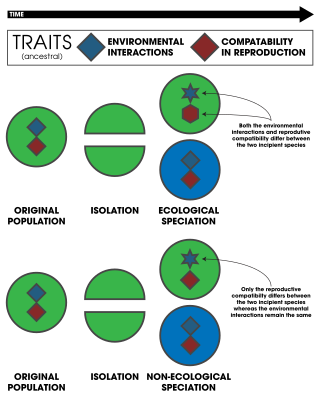
The Edward Grey Institute of Field Ornithology (EGI), at Oxford University in England, is an academic body that conducts research in ornithology and the general field of evolutionary ecology and conservation biology, with an emphasis on understanding organisms in natural environments. It is named in honour of Edward Grey, 1st Viscount Grey of Fallodon, a notable politician and ornithologist, and is part of the Department of Zoology at Oxford University.

The Zoological Society of London (ZSL) is a charity devoted to the worldwide conservation of animals and their habitats. It was founded in 1826. Since 1828, it has maintained London Zoo, and since 1931 Whipsnade Zoo.
Christopher Miles Perrins, is Emeritus Fellow of the Edward Grey Institute of Field Ornithology at the University of Oxford, Emeritus Fellow at Wolfson College, Oxford and His Majesty's Warden of the Swans since 1993.

Brian Charlesworth is a British evolutionary biologist at the University of Edinburgh, and editor of Biology Letters. Since 1997, he has been Royal Society Research Professor at the Institute of Evolutionary Biology (IEB) in Edinburgh. He has been married since 1967 to the British evolutionary biologist Deborah Charlesworth.

Pareiasaurs are an extinct clade of large, herbivorous parareptiles. Members of the group were armoured with osteoderms which covered large areas of the body. They first appeared in southern Pangea during the Middle Permian, before becoming globally distributed during the Late Permian. Pareiasaurs were the largest reptiles of the Permian, reaching sizes equivalent to those of contemporary therapsids. Pareiasaurs became extinct at the end of the Permian during the Permian-Triassic extinction event.
The Frink Medal for British Zoologists is awarded by the Zoological Society of London "for significant and original contributions by a professional zoologist to the development of zoology." It consists of a bronze plaque, depicting a bison and carved by British sculptor Elisabeth Frink. The Frink Medal was instituted in 1973 and first presented in 1974.
The Stamford Raffles Award is an award of the Zoological Society of London. It is "For distinguished contributions to zoology by amateur zoologists or professional zoologists in recognition of contributions which are outside the scope of their professional activities." The first awards were sculptures by Henry Moore called 'Animal Form', followed later by sculptures called 'Young Hippo' by Anita Mandl.

Laurence Daniel Hurst is a Professor of Evolutionary Genetics in the Department of Biology and Biochemistry at the University of Bath and the director of the Milner Centre for Evolution.

William James Sutherland is the Director of Research at the University of Cambridge Department of Zoology, and was previously the Miriam Rothschild Professor of Conservation Biology. He has been the president of the British Ecological Society. He has been a Fellow of St Catharine's College, Cambridge since 2008.
Patricia Monaghan is Regius Professor of Zoology in the Institute of biodiversity, animal health & comparative medicine at the University of Glasgow.
Maria R. Servedio is a Canadian-American professor at the University of North Carolina at Chapel Hill. Her research spans a wide range of topics in evolutionary biology from sexual selection to evolution of behavior. She largely approaches these topics using mathematical models. Her current research interests include speciation and reinforcement, mate choice, and learning with a particular focus on evolutionary mechanisms that promote premating (prezygotic) isolation. Through integrative approaches and collaborations, she uses mathematical models along with experimental, genetic, and comparative techniques to draw conclusions on how evolution occurs. She has published extensively on these topics and has more than 50 peer-reviewed articles. She served as Vice President in 2018 of the American Society of Naturalists, and has been elected to serve as President in 2023.
Nonadaptive radiations are a subset of evolutionary radiations that are characterized by diversification that is not driven by resource partitioning. The species that are a part of a nonadaptive radiation will tend to have very similar niches, and in many cases will be morphologically similar. Nonadaptive radiations are driven by nonecological speciation. In many cases, this nonecological speciation is allopatric, and the organisms are dispersal-limited such that populations can be geographically isolated within a landscape with relatively similar ecological conditions. For example, Albinaria land snails on islands in the Mediterranean and Batrachoseps salamanders from California each include relatively dispersal-limited, and closely related, ecologically similar species often have minimal range overlap, a pattern consistent with allopatric, nonecological speciation. In other cases, such as certain damselflies and crickets from Hawaii, there can be range overlap in closely related species, and it is likely that sexual selection plays a role in maintaining species boundaries.

When speciation is not driven by divergent natural selection, it can be said to be nonecological, so as to distinguish it from the typical definition of ecological speciation: "It is useful to consider ecological speciation as its own form of species formation because it focuses on an explicit mechanism of speciation: namely divergent natural selection. There are numerous ways other than via divergent natural selection in which populations might become genetically differentiated and reproductively isolated." It is likely that many instances of nonecological speciation are allopatric, especially when the organisms in question are poor dispersers, however sympatric nonecological speciation may also be possible, especially when accompanied by an "instant" loss of reproductive compatibility, as when polyploidization happens. Other potential mechanisms for nonecological speciation include mutation-order speciation and changes in chirality in gastropods.
Loeske E. B. KruukFRS is an evolutionary ecologist who is a Royal Society Research Professor at the University of Edinburgh. She was awarded the 2018 European Society for Evolutionary Biology President's Award. In 2023, she was elected as a Fellow of the Royal Society.

Neil John Gemmell, is a New Zealand geneticist. His research areas cover evolutionary genetics and genomics, molecular ecology, and conservation biology. Originally from Lower Hutt, he obtained his PhD at La Trobe University in Melbourne, Australia. Since 2008, Gemmell has been a professor at the University of Otago and since 2019 holds one of their seven Sesquicentennial Distinguished Chairs. Significant work includes the search of the Loch Ness Monster (2018) and the sequencing of the tuatara genome. In 2020, Gemmell received the Hutton Medal by the Royal Society Te Apārangi.

Nichola Jayne Raihani is a British psychologist who is a Professor of Evolution and Behaviour at University College London. Her research considers the evolution of cooperation in nature. She was elected Fellow of the Royal Society of Biology in 2019. Her first book, The Social Instinct, was released in 2021.

The Department of Biology, established in 2022, is a science department in the University of Oxford's Mathematical, Physical and Life Sciences Division. It was formed on 1 August 2022 after a merger between the Department of Plant Sciences and Department of Zoology.
Judith Elizabeth Mank is an American-British zoologist who is a Canada 150 Chair at the University of British Columbia. She studies how evolution produces variation in animals. She is interested in sexual dimorphism and the formation of sex chromosomes.
Julie L. Lockwood is an American ecologist who is a professor in the Department of Ecology, Evolution, and Natural Resources at Rutgers University. She is the Director of the Institute of Earth, Ocean, and Atmospheric Sciences. Her research investigates how invasive species impact natural ecosystems. In 2022, she was elected a Fellow of the American Association for the Advancement of Science.









